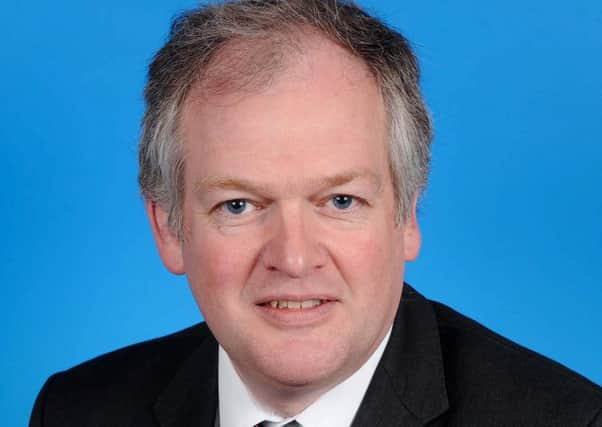Call for urgent meeting over port check suspensions


Mr McAleer, chairman of the AERA committee, described the move by the Department of Agriculture, Environment and Rural Affairs to withdraw staff and suspend physical inspections of products of animal origin at Belfast and Larne ports as ‘very concerning’.
“These disgraceful threats must be condemned by all,” he added.
Advertisement
Advertisement
“My thoughts are first and foremost with the workers involved and their families but this will also have an impact on trade.
“I have written to the Department calling for an urgent meeting with senior officials, including the chief veterinary officer, to discuss this impact.
Speaking earlier this week Northern Ireland’s Chief Veterinary Officer (CVO) Dr Robert Huey confirmed that the ways by which businesses and traders move food, animals, feed and plants from Great Britain to Northern Ireland (NI) has changed significantly since the beginning of January.
He added that Department of Agriculture, Environment and Rural Affairs (DAERA) and Local Authority Inspectors have started an enhanced regime of checks on food items, animals including fish, plants and seeds and animal feed arriving at NI’s Points of Entry (POE).
Advertisement
Advertisement
Huey said: “This is something that we are legally required to do within the framework of the Northern Ireland Protocol.
“It’s been one month since we began implementing the new processes and, while I committed to applying a sensible and pragmatic approach to checks in the first few weeks, it’s fair to say that it has been a steep learning curve for businesses, traders and indeed for DAERA officials.”
According to the CVO, there is new paperwork to complete, new systems to register with and new processes to follow.
He added: “In December, I predicted that this new approach would be ‘lumpy’ and the first few days proved that to be true.
Advertisement
Advertisement
“The shock felt by industry within the first 72 hours set us off on an intensive and focussed round of engagement sessions with representative bodies and stakeholders in the retail, haulage and meat and poultry sectors, as well as across the entire agri-food spectrum, to help them understand what they have to do to comply with the law.
“We’ve done all we can to help businesses learn the new systems and pivot their business models to fit the new world we live in.
“We have listened to their concerns and problems and worked with them to facilitate their experts to design practical solutions to the most significant problems, such as the identification of consignments on groupage loads. I’d like to thank those businesses for their patience and their flexibility in adapting so quickly.”
Huey also confirmed that there are some parts of the process causing more difficulty than others.
Advertisement
Advertisement
“The single biggest issue for us, is the failure of businesses to pre-notify. It is the bedrock of our process and the issue is quite simple: if we don’t know a consignment is arriving, we can’t prepare to clear that consignment quickly and efficiency. It has to be detained for checks and notification and paperwork completed.
“This causes increasing long delays, as those arriving without pre-notification are prioritised for checks.
“Those who have pre-notified, who have uploaded the correct certification onto TRACES, who have applied a seal, will normally have a frictionless transit through the POE.”
The good news, according to the CVO, is that the compliance levels of those arriving at NI’s POEis rising and the number of lorries officials need to physically detain, is falling by the day.
Advertisement
Advertisement
He commented: “And it’s just in time. While we continue to support traders as much as we can, we must also abide by the law and we are increasing our enforcement.
“The emphasis on assistance and education of traders applied in the beginning is not sustainable and we have started to be firmer in our approach to food, animals, feed and plants and seeds arriving without the right documents and pre-notifications. We have published guidance online that sets out the processes that must be followed, along with a Compliance Protocol which sets out the measures that will be taken where non-compliance is detected.”
Huey concluded:“Moving forward, we already know there are further challenges coming down the track - most notably is the end of the three-month grace period for supermarkets and trusted traders.
“From 1 April, as the position stands, they will have to provide export health certificates for food arriving into NI from GB. We are doing all we can to assist with that new process and are meeting regularly with retailers to listen to their concerns and try to find operational solutions where we can.
Advertisement
Advertisement
“My focus is two-fold and simple: keep products moving and keep within the law. It is nothing more complicated than that. It is in all our interests to make sure that what lands at the ports, is ready and able to make its way to its destination in Northern Ireland without delay.
“I am urging all businesses to check DAERA’s website, where they can find all the information they need to make sure they can move their consignments as easily and quickly as possible. We will do all we can to help.”